By David Weisman, M.D.
BLOGS
Neuroscience finds a friend in Buddhism.
Published on January 26, 2011
Did Buddhism get the brain right?
Neuroscience finds a friend in Buddhism.
Published on January 26, 2011
Did Buddhism get the brain right?
One of my previous essays was picked up with approval by at least one Buddhist, saying it "could be a basic Buddhist teaching text." That essay concerned neurology's demonstration that the thing we take as our unified mind is false. Our mind is not unified and, indeed, can barely be said to exist. It mostly fools itself into being, and it is easily fractured into separate parts, in which the subject maintains subjective unity through the use of confabulation.
At the time, I'm sorry to say I was privately dismissive. One hears this sort of thing all the time, especially about Buddhism and the brain. Like any religion, Buddhism made pre-scientific claims about the world and will root itself in the real when allowed.
When science supports a particular religious teaching, you can expect members of that religion to become strict empiricists, telling themselves and the world that their belief is grounded in reality. For example, the Judeo-Christian tradition happily accepts a weather model out of the University of Colorado showing how wind could have created a land bridge for Moses and his exodus. They are less happy to accept scientific data that contradicts their preconceived beliefs, witness the religious response to evolution.
No surprise there. No human likes to be wrong, but science doesn't care. Science, at least good science, tells us about the world as it is, not as we wish it to be. Sometimes what science finds will be consistent with what religion wishes it to be. But usually not, and I should note that on every large issue: human origins, our place in the universe, cosmology, and our minds, science finds profound contradictions to most religious thought.
My understanding of Buddhism is incomplete, but I think I have the essentials down. Briefly: one of Buddhism's central dogmas teaches the world is constantly changing and there is no such thing as a permanent state. This seems appropriate as far as the natural world is concerned, and apparently it should not be applied to mathematical truths or moral certainties, but is sometimes applied to Buddhism's own dogmas. Buddhism has had eons to work out the seeming contradictions, and it is only someone who was not indoctrinated into Buddhism who finds any of this weird. Or at least any more weird than any other religious dogmas, like, say, the belief that a God breathed a soul into the first human and since then all (or at least most) humans have them.
When a Buddhist applies the idea of constant change to the self and the soul, he gains an insight that other religions lack. What we call a mind (or a self, or a soul) is actually something that changes so much and is so uncertain, that our terms for it do not find meaning. The Buddhist word for self is anatta and it means 'no self.' It is used to refer to oneself, while cleverly reminding the user of the word that there is such thing.
Within this framework, one is immediately struck by the disconnect between perception and religious teaching. All is endlessly changing, but I feel unified and unchanged from moment to moment, year to year. The way things feel becomes suspect, just as it does in modern neuroscience. Broadly, both Buddhism and neuroscience converge on similar points of view: the way it feels to be you isn't how it is, that even our language about ourselves is to be distrusted (witness the tortured negation of anatta), and there is no permanent, constant soul in the background.
Despite saying there is no self, Buddhism does posit an immaterial thing that survives the brain's death. Through life there is a consciousness, always changing like the world, one mental state rising like a wave to crash on the beach, then another and another. After a person's death, the consciousness re-incarnates. This isn't much of a trick, since even during a Buddhist life, each moment can be considered a re-incarnation from the moment before. The waves still lap, the beach shifted. If you're good, they might lap at a higher organism. If you're not, well, insects clearly have consciousness and someone's waves need to supply it.
So how does Buddhism do? Pretty well. Buddhism lays out the concept that there is no mind the way we tend to consider them (as we consider our self). In broad strokes, neuroscience and neurology agree.
Brain problems give rise to an altered experience of the world, and the alteration nearly always challenges one's unified, static perception of one's self. This is because every experience you have depends on the neuronal machinery working silently below the surface of awareness. These neurons give rise to your personality, memory, ability to plan, your emotional valence and the emotional charges assigned to people, places, things, and goals. The loss or dysfunction of these neurons produces problems with what the brain does: the production of our mind.
Alzheimer's disease typically affects the brain cells responsible for forming new memories. Without them, there is no memory. One might want to remember, but without the neuronal machinery, it is impossible. Sad, but it demonstrates pretty much what Buddhism tells us, the self is constantly changing, sometimes for the worse.
The brain is also constantly shifting, creating unconscious streams which can sway what we still call, in our ignorance about ourselves, our volition. Neuroscience is getting at this fact. In one study, typical of its kind, subjects were asked to play a sort of shell game in which high rewards were hidden behind risky choices and low rewards were hidden behind low risk choices. It has been shown that humans with damage to the right pre-frontal cortex tend to make risky and ill-considered choices. One man I knew, who had a frontal dementia, engaged the services of a prostitute and brought her home, intending to introduce her to his family.
The study subjects played the game after low frequency transcranial magnetic stimulation (TMS) induced slight dysfunction in their right or left frontal lobe. They made riskier choices after TMS to the right frontal lobe.
This study, and many others like it, offers support to the view that a decision is not a single process, or a monolithic , unified machine, even if that's the way it feels. The reality is that a decision is the result of many streams, some at odds with each other, the winner is what we call a volitional decision.
Of course this study is also perfectly compatible with naturalism. But the results challenge every theology on the planet - with the possible exception of Buddhism.
Does this endorse Buddhism? Well, yes it does, and it does so surprisingly well. Buddhism gets quite a bit correct. It does so in a vague manner of course: they get to propose a soulish thing that accounts for mental activity and partially survives one's death and they get to deny this thing as well. The dogma of a surviving bit of self that gets reincarnated is, of course, without support. But the extent to which Buddhists get things right is in proportion to their comfort with neuroscience. When it comes to finding support for their religious beliefs, the comfort can become unseemly when some seek out labs and findings in which the self is shown to divisible, a slave to brain function, and illusionary.
How did they do it?
I speak here as an outsider, but it seems to me that Buddhism started with a bit of empiricism. Perhaps the founders of Buddhism were pre-scientific, but they did use empirical data. They noted the natural world is changing, and this is certainly right. If there is one constant in our world, it is constant change. At the same time, Buddhism made an important connection: we are part of the natural world, and processes in the natural world apply equally to rocks, trees, insects, and human selves. Thus, if change is central to the natural world, it is central to our nature as well. The monotheistic religions instead elevated humans above and beyond nature. So a great deal of conflict with science concerns taking humans off their delusional pedestal: from our proper place at the fringe of the universe to our descent from common ape-like ancestors. Because Buddhism never made these errors, it seems better able to handle scientific theory and observation.

















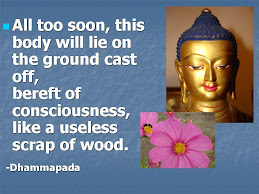
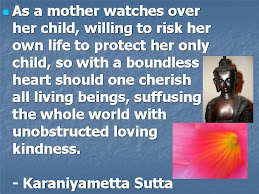
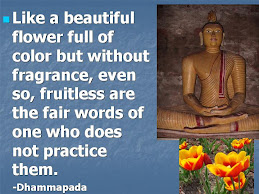
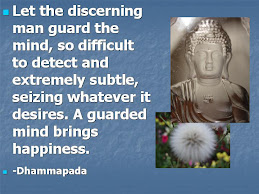

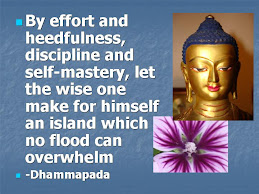

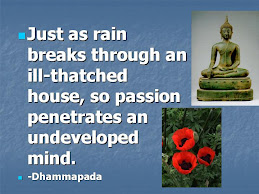


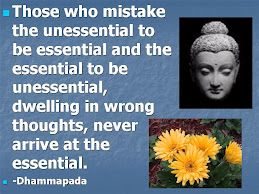
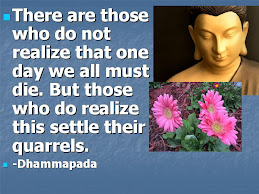
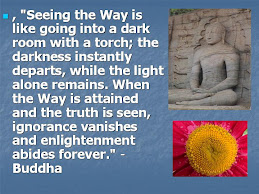

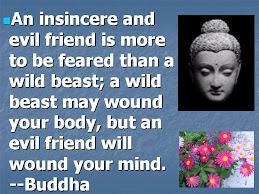
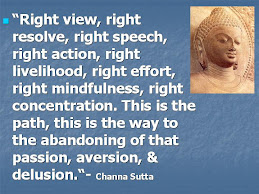

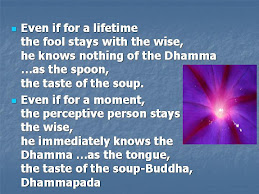



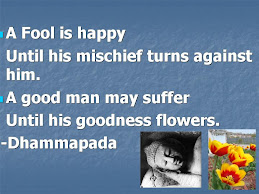
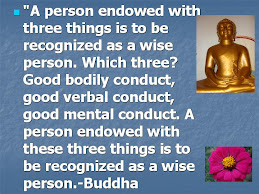

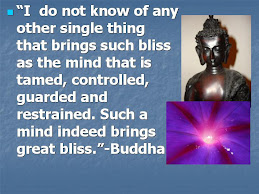
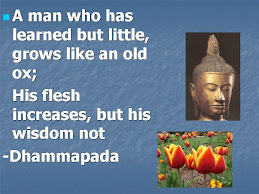
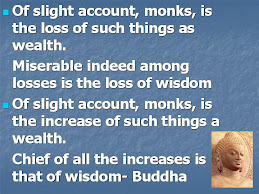

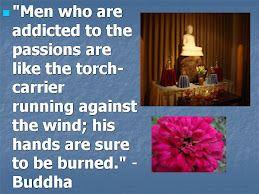


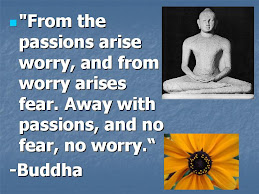
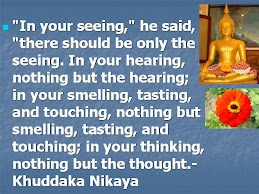




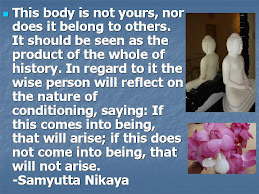
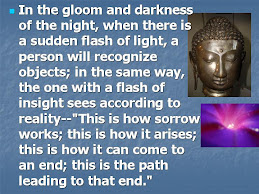
















2 comments:
I think it got it right, very right. Cognitive neuroscience in the future will have to adopt Buddhist teachings about the mind and how it works. it is a matter of time.
Thank you for your research in this area. I've personally been fascinated with the field of neuroscience for a long time and found this article very helpful for reference in an article I just published drawing the connection between neuroscience and Buddhism. You can check it out here: http://lifeandworkinbalance.com/home/home/?p=1577
Thank you again for your keen insights!!
Post a Comment